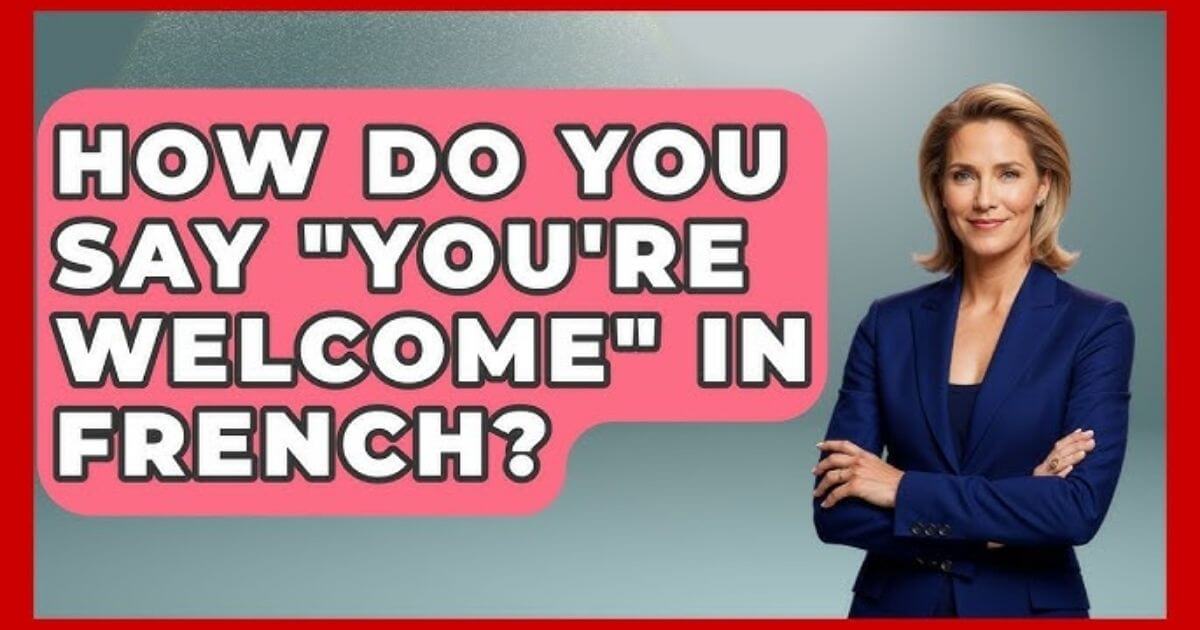
Common Ways to Say You are Welcome in French
When learning French, like English, offers a variety of ways to say “you are welcome.” Some are very casual, while others are best suited for polite or formal situations. Let’s explore the most frequently used expressions to say You are Welcome in French with Gurulango right away!
“De rien”
- Meaning: It literally means “of nothing,” similar to “it was nothing.”
- Usage: Very casual and commonly used in day-to-day conversations.
Example:
- A: Merci pour le café ! (Thanks for the coffee!)
- B: De rien ! (You are welcome!)
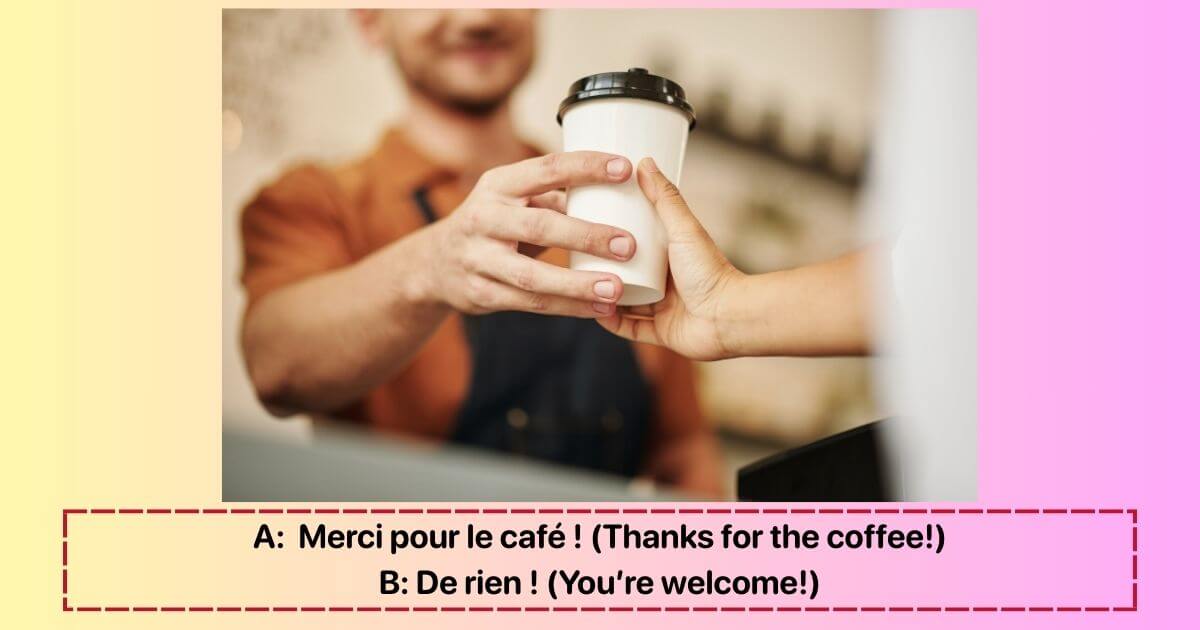
“Je vous en prie” / “Je t’en prie”
A more polite and slightly formal way to say “you are welcome.”
- “Je vous en prie”: Formal or plural
- “Je t’en prie”: Informal, singular
Example 1:
- A: Merci beaucoup, Madame. (Thank you very much, Ma’am.)
- B: Je vous en prie. (You are welcome.)
Example 2:
- A: Merci pour le coup de main ! (Thanks for the help!)
- B: Je t’en prie, ça m’a fait plaisir. (You are welcome, it was my pleasure.)
These phrases are perfect for situations where you want to sound respectful, especially in customer service or professional environments.
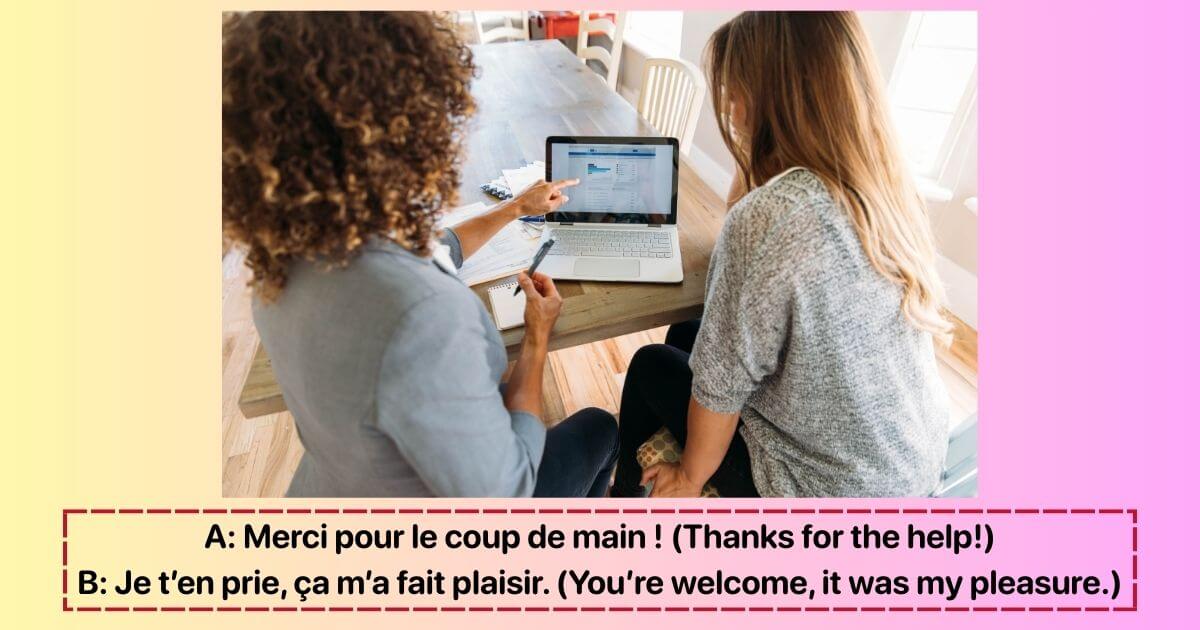
“Il n’y a pas de quoi”
This phrase means “there’s nothing to thank me for.”, and commonly used across all age groups.
Example:
- A: Merci d’avoir attendu. (Thank you for waiting.)
- B: Il n’y a pas de quoi. (You are welcome.)
It’s slightly more formal than “de rien” but still friendly and widely accepted.
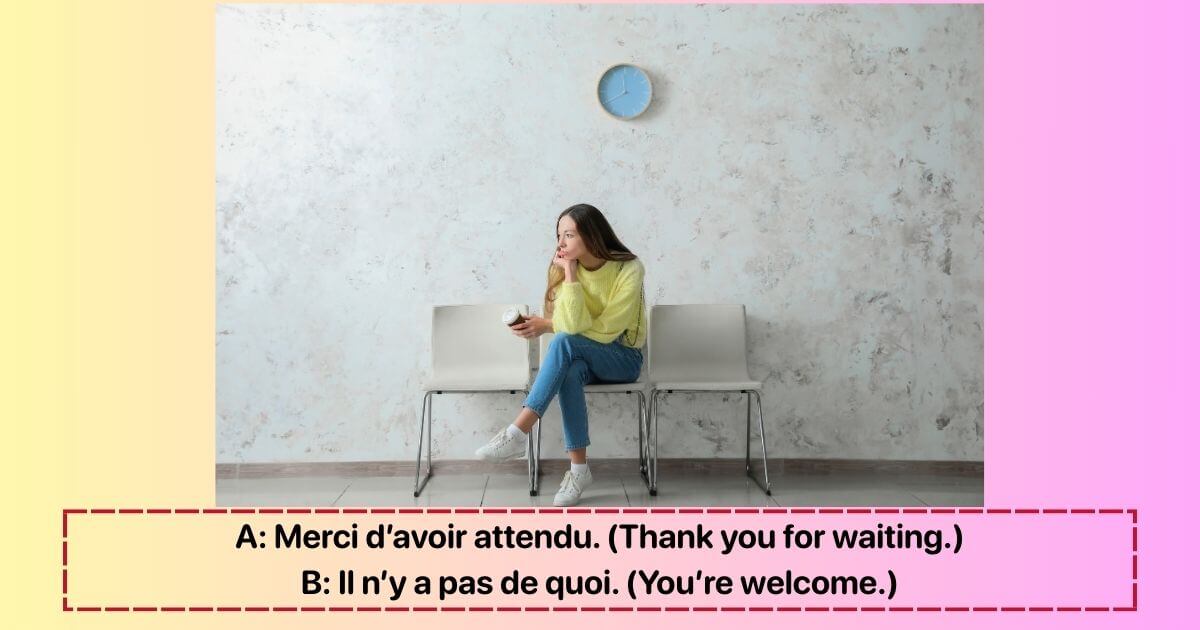
“Avec plaisir”
Literally “with pleasure,” this phrase is similar to “my pleasure” in English, slightly more personal
Example 1:
- A: Merci pour votre aide précieuse. (Thank you for your valuable help.)
- B: Avec plaisir ! (With pleasure! / You are welcome!)
Example 2:
- A: Merci d’être venu. (Thank you for coming.)
- B: Avec plaisir, ça m’a fait plaisir. (With pleasure, it was my pleasure.)
Use this when you want to emphasize kindness and willingness to help.
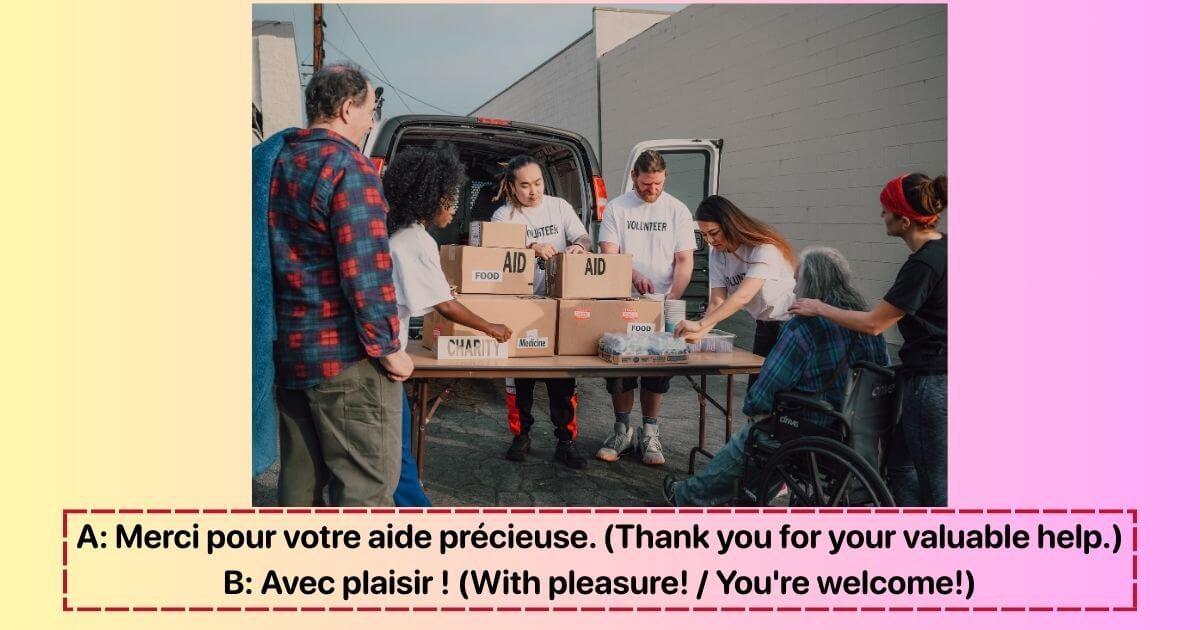
“Pas de problème”
Just like in English, this phrase means “no problem.” Very casual and often used with friends or peers.
Example:
- A: Merci pour le prêt de ton livre. (Thanks for lending me your book.)
- B: Pas de problème ! (No problem! / You are welcome!)
Be cautious, while common, it might sound a bit too casual in formal situations.
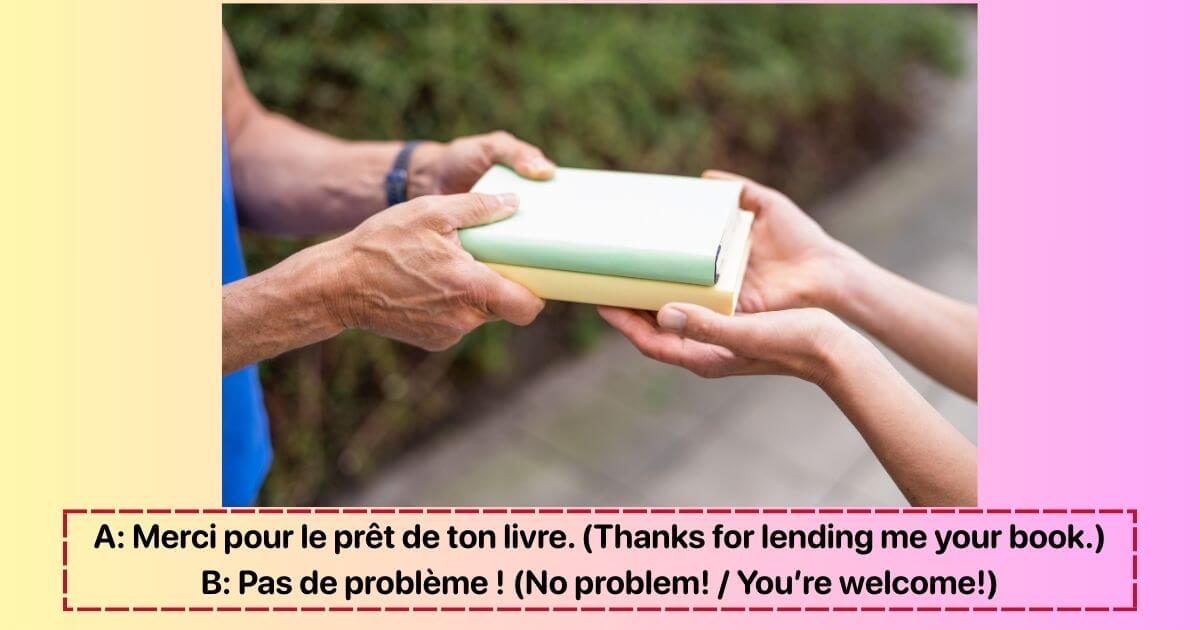
Contextual Usage of “You are Welcome” in French
Understanding how to say you are welcome in French language goes beyond memorizing phrases. Choosing the right one depends on context, social setting, and relationship with the speaker.
Formal vs. Informal Situations
French, like many languages, distinguishes between formal and informal speech.
| Formal Situations | Informal Situations |
| Use these in business meetings, speaking with strangers, elderly people, or superiors. | Perfect for conversations with friends, peers, or children. |
|
|
To your boss:
|
To a friend:
|
Understanding when to switch between “je vous en prie” and “de rien” can help you sound more fluent and respectful.
Cultural Nuances
Knowing how to say “you are welcome in French” is great, but knowing when to say it is just as important.
- Responding is expected: In French culture, when someone says “merci”, it’s polite (and expected) to respond. Silence can feel dismissive.
- Understatement is valued: Many French people prefer modest expressions like “de rien” or “il n’y a pas de quoi”, rather than over-the-top enthusiasm.
- Professional tone matters: In customer service or workplace settings, “je vous en prie” is the safest and most appropriate choice.
- Regional expressions exist: In some regions of France, people may say “c’est moi” (literally: “it’s me”), meaning “no, I should be thanking you!” It’s a humble twist to express gratitude.
- Tone and body language: A smile and eye contact can enhance your sincerity, even if your French isn’t perfect yet.
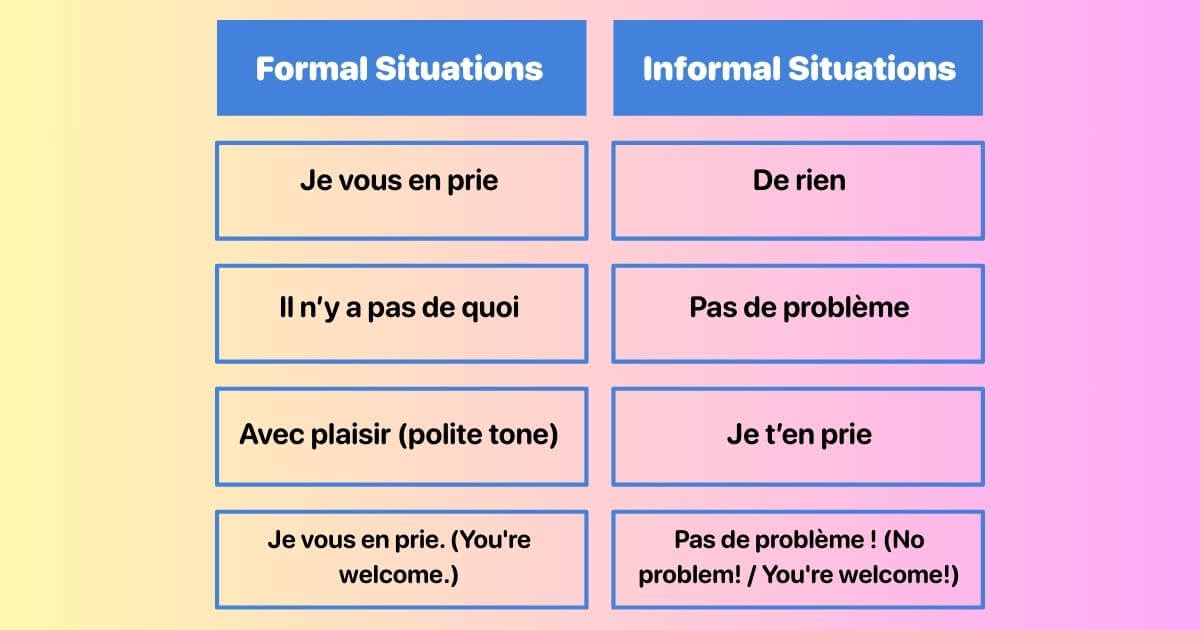
Conclusion
Learning how to say you are welcome in French is more than just picking a phrase, it’s about choosing the right tone, understanding the setting, and showing respect.